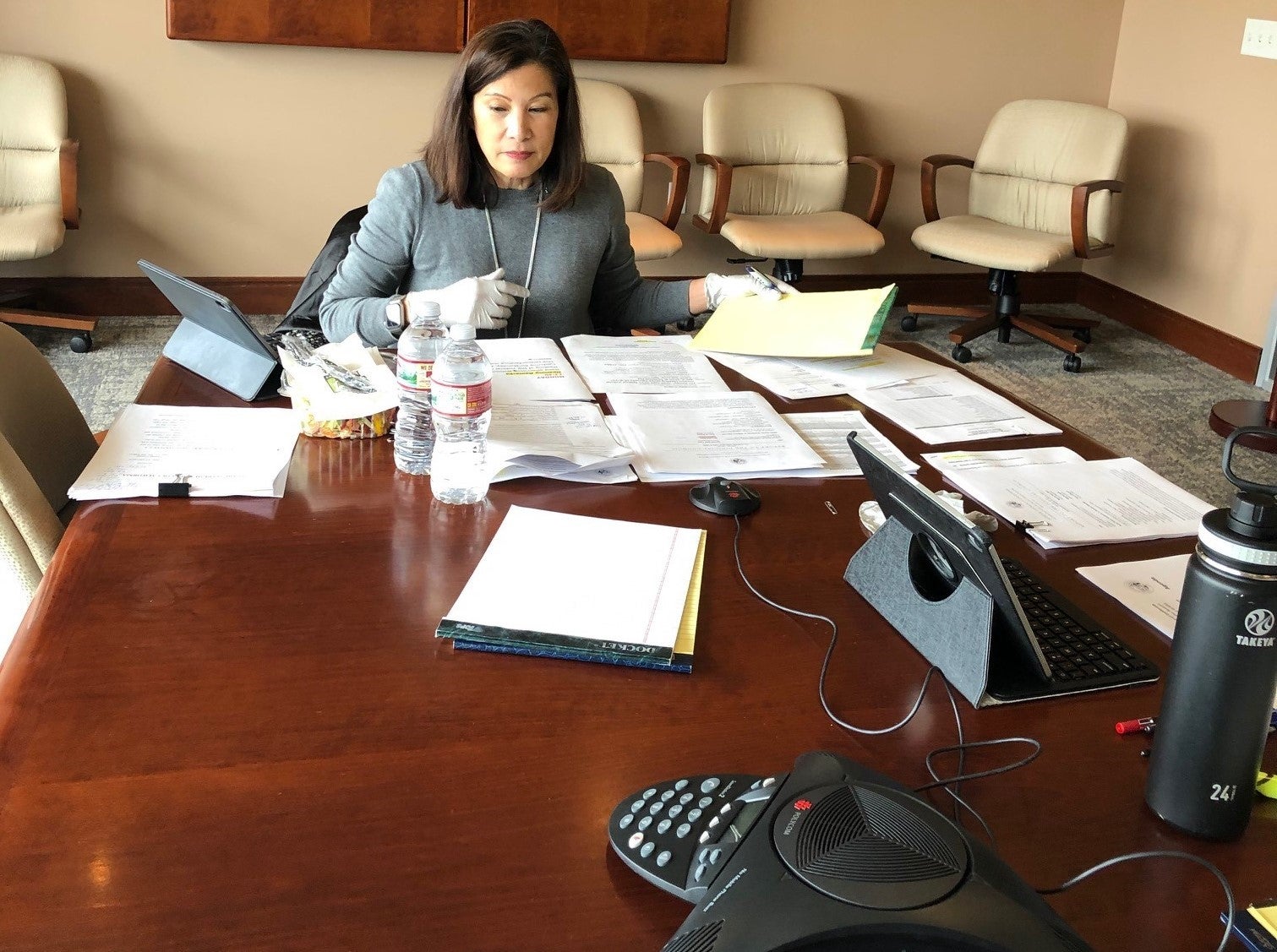Judicial Council Adopts New Rules to Lower Jail Population, Suspend Evictions and Foreclosures
VIA TELECONFERENCE—At its meeting today, the Judicial Council approved 11 temporary emergency rules, including setting bail statewide at $0 for misdemeanors and lower-level felonies to “safely reduce jail populations” and staying eviction and foreclosure proceedings to protect Californians from losing their homes during the COVID-19 pandemic.
This was the second emergency council meeting of court and branch leaders from around the state to consider further measures to ensure California courts—which remain open as "essential services" under Gov. Newsom's stay-home executive order—can meet stringent health directives while also providing due process and access to justice.
“We are at this point truly with no guidance in history, law, or precedent,” said Chief Justice Tani Cantil-Sakauye, chair of the council. “And to say that there is no playbook is a gross understatement of the situation. In developing these rules, we listened to suggestions from our justice system partners, the public, and the courts, and we greatly appreciate all of the input. Working with our court stakeholders, I’m confident we can preserve the rule of law and protect the rights of victims, the accused, litigants, families and children, and all who seek justice. It’s truly a team effort.”
The council received and considered more than 100 written comments on the new rules from judges, public defenders, district attorneys, law enforcement, legal aid and advocacy groups, unions, attorneys, court reporters, interpreters, and other justice system partners.
Among the actions the council approved, to go into effect immediately:
- Suspend the entry of defaults in eviction cases;
- Suspend judicial foreclosures;
- Allow courts to require judicial proceedings and court operations be conducted remotely, with the defendant’s consent in criminal proceedings;
- Adopt a statewide emergency bail schedule that sets bail at $0 for most misdemeanor and lower-level felony offenses;
- Allow defendants to appear via counsel or remote technologies for pretrial criminal hearings;
- Prioritize hearings and orders in juvenile justice proceedings and set a structure for remote hearings and continuances
- Extend the timeframes for specified temporary restraining orders;
- Extend the statutes of limitations governing civil actions; and
- Allow electronic depositions in civil cases.
The council previously approved a number of temporary measures at its first emergency meeting Mar. 28 to give courts flexibility to continue to provide essential services to the public while protecting health and safety during the pandemic.
For a complete list of emergency orders taken by the California court system in response to the COVID-19 pandemic, see the California Courts Newsroom.



